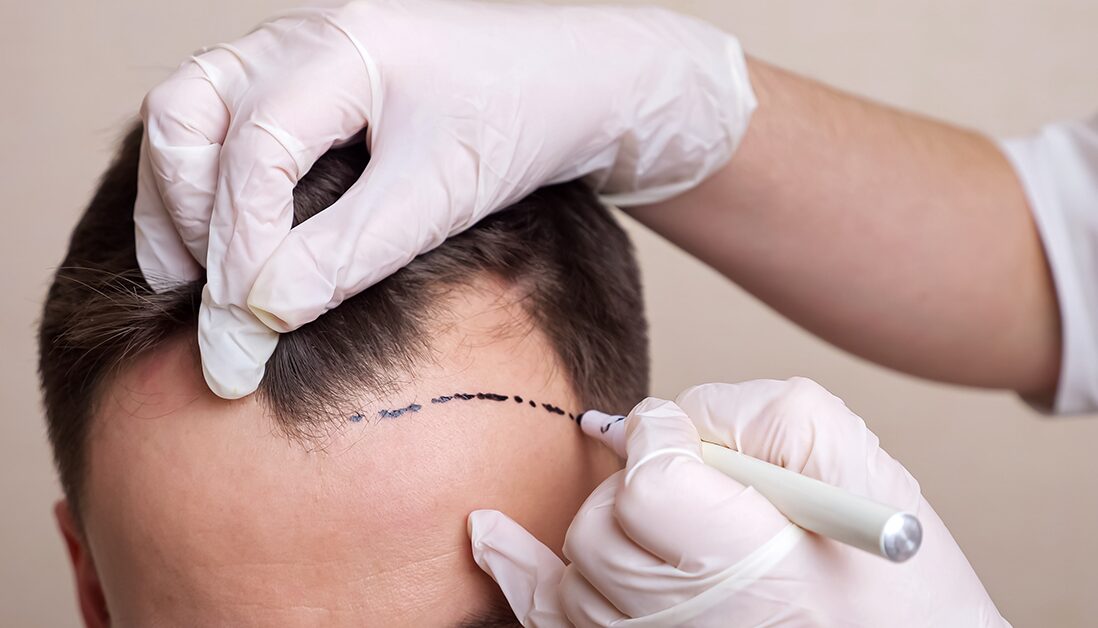Introduction
Planning to undergo a hair transplant can feel both exciting and overwhelming. One of the most common questions we hear at Fortes Clinic is: What to do before hair transplant surgery to ensure the best results? Preparing properly is crucial for the success of the procedure and for minimising the risk of complications.
In this article, we’ll walk through everything you need to know before the day of your transplant, from pre-operative instructions to lifestyle adjustments that support your recovery.
For background information, you might also want to read our post on this guide on how hair transplants are performed.
Initial Assessment and Professional Advice
Before any hair transplant takes place, a consultation is essential. This is where your surgeon assesses the degree of hair loss, the quality of your donor hair, and your overall health. During this session, you’ll be asked about your medical history and your expectations, and the surgeon will recommend a suitable technique such as FUE or FUT.
This step is crucial for setting realistic goals and ensuring you’re a good candidate for the procedure.
Guidance Before the Procedure
Once your surgery is scheduled, your clinic will provide a list of instructions to follow in the days leading up to the procedure. These are designed to reduce the risk of bleeding, swelling, or delayed healing.
Common recommendations include:
- Avoid alcohol for at least three days before the procedure
- Stop smoking two weeks before surgery, as it restricts blood flow to the scalp
- Refrain from taking aspirin or anti-inflammatory medications unless approved
- Avoid vitamin E and herbal supplements, which can also thin the blood
Following these instructions closely can significantly impact the success of your transplant.
If you’re interested in recovery specifics, our article on our detailed post on transplant longevity explains what to expect in the months after the procedure.
Clean Scalp Preparation
Most clinics advise washing your hair thoroughly the night before and the morning of your procedure. Use a mild, non-medicated shampoo, and avoid applying any styling products like gels or sprays. A clean scalp reduces the risk of infection and provides a better working surface for the surgeon.
Leave Hair Preparation to the Experts
While it may seem like a good idea to cut your hair before the procedure, it’s best to leave this to the clinic. The surgical team may need to trim your hair in a specific way, especially if you are undergoing FUE or FUT. Shaving or trimming too much can make it harder to assess the donor area or plan the grafts accurately.
For more information on surgical methods, visit our pages on our explanation of the FUE method and our page on the FUT technique.
Arrange Transportation and Post-Op Care
Hair transplants are typically performed under local anaesthesia, meaning you won’t be able to drive yourself home. Arrange for someone to take you to and from the clinic. You should also plan to take a few days off work to rest and follow your aftercare instructions.
Prepare your home in advance by setting up a clean sleeping area with extra pillows to keep your head elevated and stocking up on any prescribed medications or over-the-counter pain relief.
Consider preparing some loose headwear like a soft cap or hood that can be worn post-surgery without disturbing the transplanted area. This can help protect your scalp when going outside while also keeping you comfortable during recovery.
Nutrition and Hydration for Better Recovery
In the days before your surgery, aim to stay hydrated and eat balanced meals. Proper nutrition supports healing and helps your body recover faster. On the day of the procedure, eat a light breakfast unless otherwise advised by your surgeon.
Foods rich in vitamins A, C, D, and E, as well as iron and zinc, are particularly helpful. These nutrients promote cell regeneration, immune function, and skin health, which all contribute to a smoother recovery.
You may also want to temporarily reduce your intake of caffeine and salty foods in the days leading up to the surgery. These can sometimes contribute to dehydration or swelling, which may affect your comfort and recovery.
Clothing Tips for Hair Transplant Day
On the day of your transplant, wear loose, comfortable clothing with a front-opening shirt or button-down top. This avoids disturbing the newly transplanted area when changing after the procedure.
Mental Readiness for Post-Transplant Healing
While the procedure itself is relatively low-risk, it’s important to prepare mentally for the healing process. Swelling, redness, and scabbing are normal in the first few days. Hair shedding (shock loss) may also occur, but this is a temporary part of the process.
It’s a good idea to clear your schedule for the first few days after surgery to give yourself time to rest and heal. This can also help you stay relaxed and avoid unnecessary stress, which can negatively affect recovery.
Planning for Ongoing Hair Health
In addition to immediate preparation, think about your long-term goals. Will you need additional treatments to maintain your look? Are you planning to use medications such as Minoxidil or Finasteride post-transplant? Having a clear plan for aftercare and maintenance can help you make more informed decisions before the surgery even begins.
Conclusion
Knowing what to do before hair transplant surgery makes a real difference in your results and your overall experience. From following medical advice to making simple lifestyle changes, preparation is key.
At Fortes Clinic, we guide each patient through a clear pre-operative plan tailored to their needs. If you’re considering a hair transplant, book a consultation with our team and take the first step towards renewed confidence.



